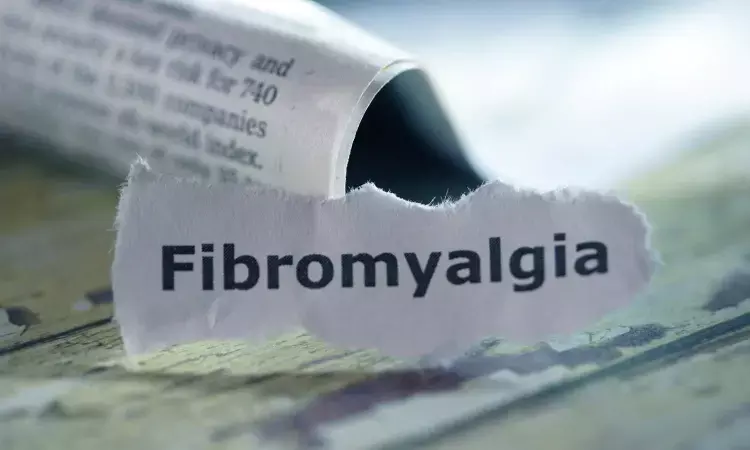- Home
- Medical news & Guidelines
- Anesthesiology
- Cardiology and CTVS
- Critical Care
- Dentistry
- Dermatology
- Diabetes and Endocrinology
- ENT
- Gastroenterology
- Medicine
- Nephrology
- Neurology
- Obstretics-Gynaecology
- Oncology
- Ophthalmology
- Orthopaedics
- Pediatrics-Neonatology
- Psychiatry
- Pulmonology
- Radiology
- Surgery
- Urology
- Laboratory Medicine
- Diet
- Nursing
- Paramedical
- Physiotherapy
- Health news
- Fact Check
- Bone Health Fact Check
- Brain Health Fact Check
- Cancer Related Fact Check
- Child Care Fact Check
- Dental and oral health fact check
- Diabetes and metabolic health fact check
- Diet and Nutrition Fact Check
- Eye and ENT Care Fact Check
- Fitness fact check
- Gut health fact check
- Heart health fact check
- Kidney health fact check
- Medical education fact check
- Men's health fact check
- Respiratory fact check
- Skin and hair care fact check
- Vaccine and Immunization fact check
- Women's health fact check
- AYUSH
- State News
- Andaman and Nicobar Islands
- Andhra Pradesh
- Arunachal Pradesh
- Assam
- Bihar
- Chandigarh
- Chattisgarh
- Dadra and Nagar Haveli
- Daman and Diu
- Delhi
- Goa
- Gujarat
- Haryana
- Himachal Pradesh
- Jammu & Kashmir
- Jharkhand
- Karnataka
- Kerala
- Ladakh
- Lakshadweep
- Madhya Pradesh
- Maharashtra
- Manipur
- Meghalaya
- Mizoram
- Nagaland
- Odisha
- Puducherry
- Punjab
- Rajasthan
- Sikkim
- Tamil Nadu
- Telangana
- Tripura
- Uttar Pradesh
- Uttrakhand
- West Bengal
- Medical Education
- Industry
Low-frequency Repetitive Transcranial Magnetic Stimulation Improves Cognition and Psychiatric Function in Fibromyalgia: Study

A recent clinical trial Brain Sciences journal explored the efficacy of repetitive transcranial magnetic stimulation (rTMS) in addressing multiple domains of fibromyalgia-related symptoms. This study focused on evaluating the impact of low-frequency rTMS on psychiatric and cognitive disorders in fibromyalgia patients.
This trial included a total of 42 patients diagnosed with fibromyalgia (FM) who were randomly assigned to receive either active or sham rTMS treatments. Over the course of 20 sessions, the participants in the active group were administered 1 Hz rTMS at 120% of their resting motor threshold by delivering a total of 1200 pulses per session to the right dorsolateral prefrontal cortex (DLPFC). The sham group underwent identical procedures without the active stimulation.
The assessments were conducted at three intervals; the baseline, post-treatment and three months post-treatment. The evaluation tools included the Fibromyalgia Impact Questionnaire (FIQ), Hamilton Depression and Anxiety Rating Scales (HDRS and HARS), Montreal Cognitive Assessment (MoCA), Rey Auditory Verbal Learning Test (RAVLT), Tower of London test (TOL) and the Trail Making and Digit Span Tests. These comprehensive evaluations measured the influence of rTMS on both psychiatric and cognitive functions in FM patients.
The findings revealed that both the active and sham groups expressed improvement across most rating scales at the one-month and three-month follow-ups. However, the active rTMS group demonstrated significantly greater improvements when compared to the sham group. There was a significant correlation between the FIQ scores and cognitive rating scales with the RAVLT and TOL tests. These tests are designed to measure verbal memory and executive function, respectively.
The results suggest that 20 sessions of low-frequency rTMS over the right DLPFC can lead to substantial improvements in FIQ scores by targeting psychiatric and cognitive symptoms in medicated FM patients. The observed changes in RAVLT and TOL performance were strongly linked to the improvements in FIQ results which suggests the beneficial impact of rTMS on cognitive functions impaired by fibromyalgia.
This study contributes to the growing body of research on rTMS by highlighting its potential as a therapeutic option for managing fibromyalgia symptoms. Further investigation is imperative to fully understand the mechanisms and long-term effects for the better management strategies for patients with this chronic condition.
Source:
Badr, M. Y., Ahmed, G. K., Amer, R. A., Aref, H. M., Salem, R. M., Elmokadem, H. A., & Khedr, E. M. (2024). Impact of Repetitive Transcranial Magnetic Stimulation on Cognitive and Psychiatric Dysfunction in Patients with Fibromyalgia: A Double-Blinded, Randomized Clinical Trial. In Brain Sciences (Vol. 14, Issue 5, p. 416). MDPI AG. https://doi.org/10.3390/brainsci14050416
Neuroscience Masters graduate
Jacinthlyn Sylvia, a Neuroscience Master's graduate from Chennai has worked extensively in deciphering the neurobiology of cognition and motor control in aging. She also has spread-out exposure to Neurosurgery from her Bachelor’s. She is currently involved in active Neuro-Oncology research. She is an upcoming neuroscientist with a fiery passion for writing. Her news cover at Medical Dialogues feature recent discoveries and updates from the healthcare and biomedical research fields. She can be reached at editorial@medicaldialogues.in
Dr Kamal Kant Kohli-MBBS, DTCD- a chest specialist with more than 30 years of practice and a flair for writing clinical articles, Dr Kamal Kant Kohli joined Medical Dialogues as a Chief Editor of Medical News. Besides writing articles, as an editor, he proofreads and verifies all the medical content published on Medical Dialogues including those coming from journals, studies,medical conferences,guidelines etc. Email: drkohli@medicaldialogues.in. Contact no. 011-43720751


